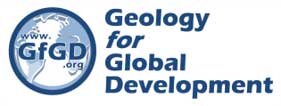Our New Strategy: 2022 - 2031
Today, GfGD launches its new strategy, driven by the ambitious and transformational vision set out in the 2030 Agenda for Sustainable Development.
With a focus on ‘leaving no one behind’, GfGD will direct its resources, expertise, networks, and influence to help build a sustainable future for all by transforming understanding of, access to, and capacity to use the geoscience required to implement the Sustainable Development Goals (SDGs).
Four interlinked priorities will shape GfGD’s activities over the next 10 years.
1. Shape and advance the geoscience research and communication agenda for sustainable development: Generating, and catalysing others to generate, knowledge, tools, and techniques that address global challenges in an ethical, pro-poor, and integrated manner.
2. Understand and address the barriers that prevent geoscience from being used effectively in sustainable development: Identifying and bridging gaps between knowledge, policy, and practice to improve the planning and implementation of sustainable development initiatives.
3. Empower the global geoscience community to contribute to sustainable development: Building an equitable and connected global geoscience community, that is inspired and equipped to serve society.
4. Create an organisation that models the values embedded in the Sustainable Development Goals: Investing in people and processes to ensure a culture where all members of the GfGD team can thrive, work can be appropriately scrutinised, and financial and environmental sustainability can be realised.
The above priorities will be achieved by delivering high-quality research and analysis, actively engaging in policy processes, and strengthening capacity through education and training. A new ‘Institute of Geoscience for Sustainable Global Development’ is being launched, together with a ‘Global Student Network’ to support the above objectives.
Dr Joel C. Gill (Chief Executive Officer) notes:
“The world has made extraordinary progress in recent decades, but with the number of people living in extreme poverty increasing, and threats to development gains from diverse environmental, social, and economic stressors, there is no time for complacency. This new strategy will help to catalyse the generation of new understanding and support the flow of knowledge between geoscientists and decision makers that is required to deliver a better future for all.”
Learn more about our strategy by opening the full document.

